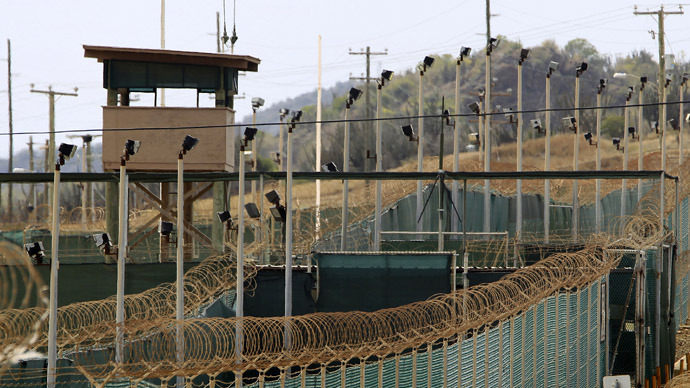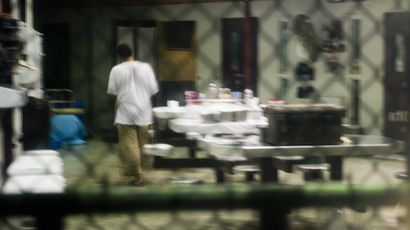Pentagon denies $200 million request for Guantanamo upkeep

A US military request for funding to renovate the prison base at Guantanamo Bay, Cuba was denied by Pentagon officials in the Obama administration who, while pledging to close the prison, have been consistently prevented from doing so by Congress.
General John F. Kelly, the chief of US Southern Command and the officer in charge of Guantanamo Bay, requested $195.7 million to update and modify the prison in March 2013. He told Congress that buildings at Gitmo, originally only designed to temporarily house inmates eleven years ago, are disintegrating and presenting problems for troops on the base.
His request, according to the New York Times, included $99 million to build two new barracks buildings for guards, $12 million for a new cafeteria, and another $49 million to replace the notorious “Camp Seven,” where high-value inmates formerly in the custody of the CIA are held. Khalid Sheikh Mohammed, the self-professed architect of the September 11 terrorist attacks, is currently held at Camp Seven.
The budget proposal was denied at some point during the summer but the news was not disclosed until Tuesday, when Southern Command spokesman Army colonel Greg Julian told the Times the request was denied “because of a lack of Congressional support to use the overseas contingency funding that we sought to complete those projects. So now we are working on various measures to mitigate some of the conditions of the facilities.”

Kelly admitted in March that the request was sizable, in part because the Cuban base requires more funding to transport material to. However, he did say the updates would be an investment for the future because it would have consolidated time-consuming and dangerous tasks.
“These are things we have to do right now,” he said. “I’m assuming Guantanamo will be closed someday, but if we look into the past 11 years, it was supposed to be temporary. Who knows where it’s going? We’ve got to take care of our troops.”
The general’s request came just months before a hunger strike swept the prison, with inmates refusing to eat as a way of attracting the world’s attention to their indefinite detention. While the strike has ebbed since dozens of inmates were involved this summer, Pentagon spokesman Lieutenant Colonel Todd Breasseale confirmed the protests were still ongoing.
“No one believes the hunger strike is over. Certainly not us,” he told Al Arabiya English. “But the numbers clearly show that the detainees’ dangerous – at times nearly suicidal – hunger strike communication operation, facilitated and distorted by myth by so many outside Guantanamo, is nowhere near what it used to be.”














